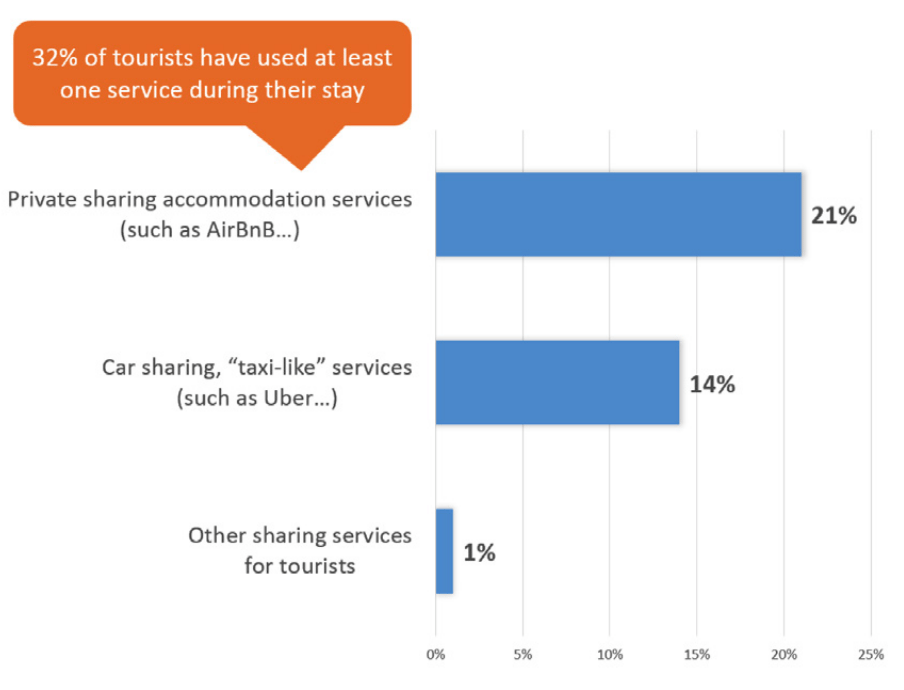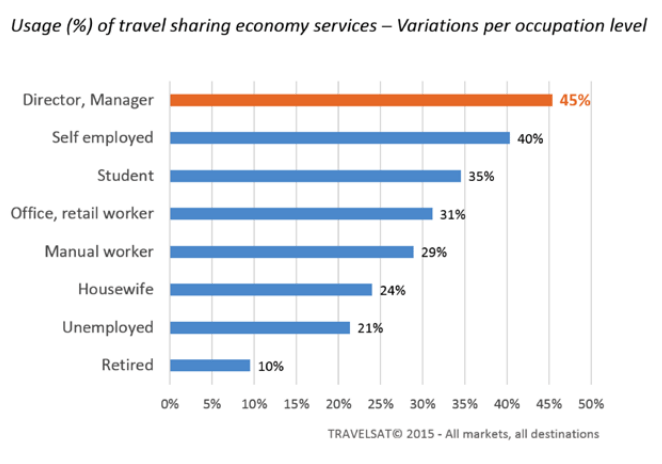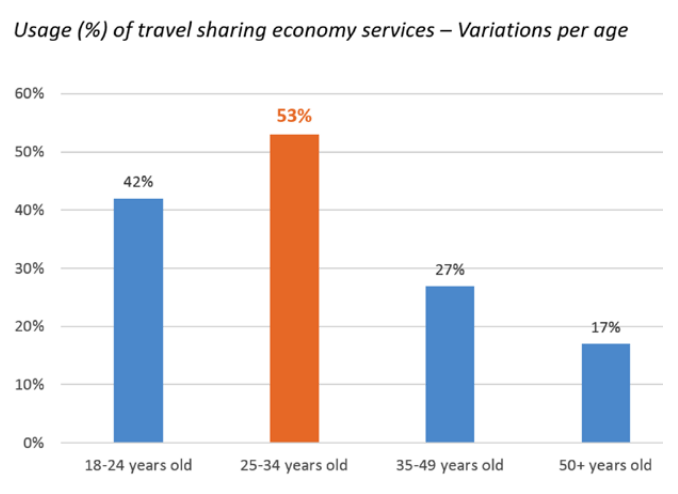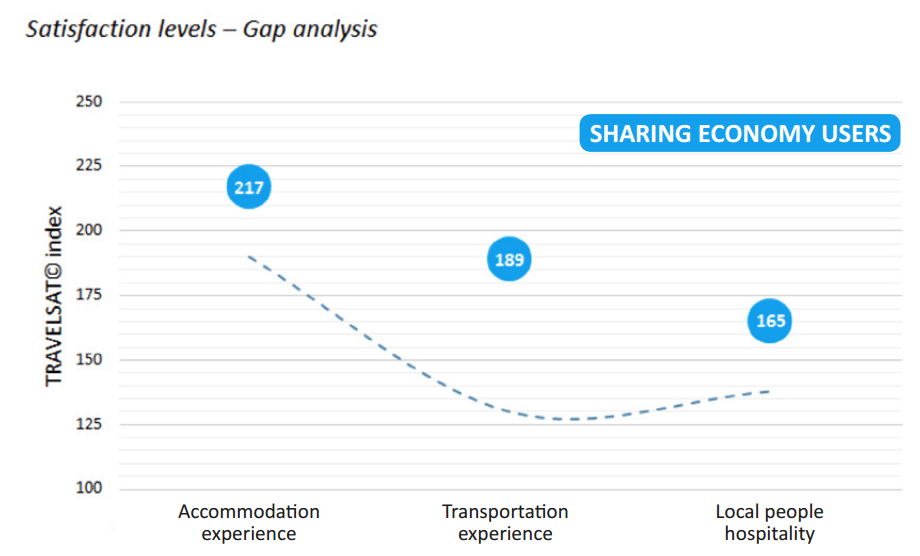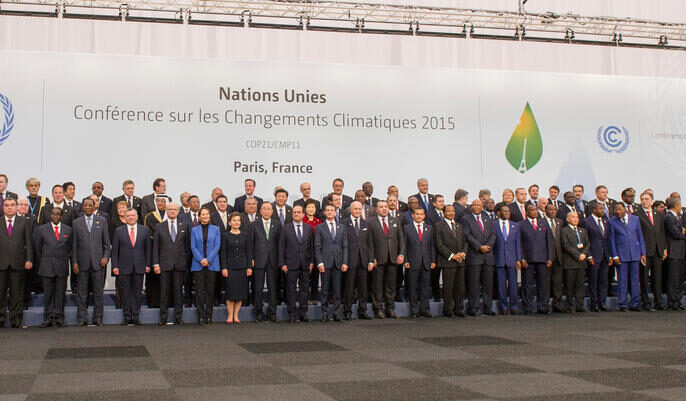5 Charts Showing Rise of Sharing Economy With Asia-Pacific Travelers

Skift Take
The Asia-Pacific region, and particularly Southeast Asia, is the world's fastest growing tourism region. Nearly one-third of travelers from the region used alternative accommodations and ride-sharing services during their international trips last year.
That's according to the Pacific Asia Travel Association, which worked with tourism research agency TCI Research on a survey to quantify the popularity of alternative accommodations and ride-sharing among Asia-Pacific travelers. These 279 million international travelers -- nearly half of them from China -- account for more than one-fifth of global international tourist arrivals.
According to the survey, 21 percent of them stayed in a shared accommodation and 14 percent used a ride-sharing service while traveling abroad in 2015. TCI conducted an online survey between January and March of more than 1,000 travelers from the region who took at least one trip during 2015.
Asia-Pacific travelers using these sharing services are more social and engaged than the average traveler from the region. Survey data found travelers who stay in short-term rentals or use ride-shares engage in 17 percent more activities during their trips than travelers who don't use these services, and their desire to shop is 35 percent higher.
The region is also one of the most competitive for American and Chinese short-term rental and ride-sharing companies.
China, for example, is Airbnb's fastest-growing outbound market but that company has struggled to gain market share against its chief rival in the country, Tujia. Didi Kuaidi, China's largest on-demand car mobile app, has invested in Uber's American competitor, Lyft, in an effort to slow Uber's growth in the region. Didi controls about 80 percent of the ride-share market in China compared to Uber's 10 percent. Both companies view China and the wider region as a key test for their long-term growth.
Chart 1: In 2015, about 32 percent of Asia-Pacific travelers said they used some kind of alternative accommodation or ride-sharing service. A higher percentage said they stayed in an alternative accommodation such as Airbnb than those who said they used an on-demand ride-share app such as Uber or Didi Kuaidi.
Chart 2: Some 45 percent of Asia-Pacific travelers that used short-term rentals or ride shares said they are high-level directors or managers in their day jobs.
Chart 3: More than half of Asia-Pacific travelers that used alternative accommodations or ride-sharing services in 2015 were between 25 and 34 years old, but 42 percent of travelers ages 35 and older also used these services.
Chart 4: As the chart shows, nearly one-third of international Asia-Pacific travelers using the sharing economy shared photos and information about their travel experiences online, one of the defining characteristics of Asia-Pacific travelers using these services. In addition, they are also 38 percent more sensitive than travelers from other regions to the "world-renowned" brand status of the destination and twice as sensitive to TV news when they choose their destination. Looking at their behaviors while in-destination, sharing economy users do 17 percent more activities than travelers from other regions and their desire to shop is 35 percent higher.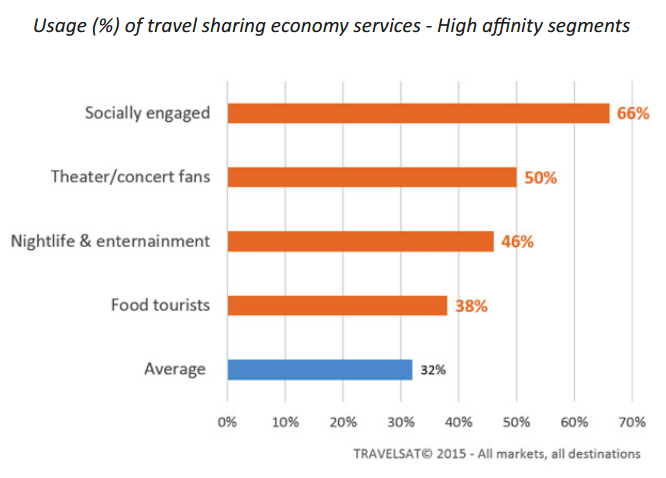
Chart 5: Asia-Pacific travelers are mostly satisfied with their alternative accommodations and ride-sharing experiences than with their interactions with local people. However, the survey also revealed a significant number of complaints or negative experiences in the alternative accommodation sector--14 percent of respondents said they've complained--which is four percentage points above the average of all types of accommodations combined.
Source: TCI Research and Pacific Asia Travel Association
